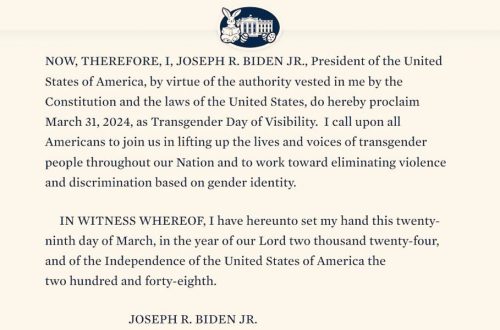 Andy Stanley preached a controversial sermon a couple weeks ago arguing that the Bible should not be the basis of our Christian faith. A number of worthy responses have appeared, but I want to highlight one that appears today from Michael Kruger. Kruger sets forth a copious critique of Stanley’s argument. I highly recommend that you read all of it. Among other things, Kruger writes:
Andy Stanley preached a controversial sermon a couple weeks ago arguing that the Bible should not be the basis of our Christian faith. A number of worthy responses have appeared, but I want to highlight one that appears today from Michael Kruger. Kruger sets forth a copious critique of Stanley’s argument. I highly recommend that you read all of it. Among other things, Kruger writes:
In the end, it is understandable why Stanley’s sermon has generated a wide variety of responses from people. He is to be commended for having a heart for the lost and for seeking to bring them to Christ. And I deeply sympathize with his desire to remove the obstacles—as many as possible—that keep people from embracing Jesus. And I am sure he personally would affirm the inspiration and authority of Scripture (I am not questioning that).
However, the sermon itself was deeply confusing and left many questions unanswered about the proper role of God’s Word in our lives. Unfortunately, much of the confusion in the sermon was driven by Stanley’s commitment to a particular methodology about how to reach non-Christians. For whatever set of reasons, Stanley has become convinced that the Bible gets in the way.
I disagree. On the contrary, the strategy of downplaying the Bible for the sake of the Gospel is a false dichotomy. The two cannot and should not ever be pitted against each other.
What God has joined together let man not separate.
Read the rest here.
I’ve been preaching through the pastoral epistles at my church, and it just so happens that we were at 2 Timothy 3:16-17 a week ago Sunday. My response to Stanley’s argument is in that sermon. You can download it here or listen below at about 20:29.
UPDATE – September 30, 2016:
Andy Stanley has posted a lengthy rejoinder to criticism he has received since preaching his controversial message. I really appreciate his clear affirmation of biblical inerrancy. He writes:
I believe the Bible is without error in everything it affirms. I believe what the Bible says is true, is true… So for anyone out there who is still a bit suspicious, I affirm The Chicago Statement on Biblical Inerrancy.
Again, I really am grateful for this strong and unambiguous affirmation. Stanley goes on to argue that the real issue is not his doctrine of scripture but outdated ways of preaching the Bible. Because millennials don’t believe in the authority of scripture, we cannot appeal to them with “the Bible told me so” arguments. He writes:
Appealing to post-Christian people on the basis of the authority of Scripture has essentially the same effect as a Muslim imam appealing to you on the basis of the authority of the Quran. You may or may not already know what it says. But it doesn’t matter. The Quran doesn’t carry any weight with you. You don’t view the Quran as authoritative.
Close to half our population does not view the Bible as authoritative either. If you’re trying to reach people with an undergraduate degree or greater, over half your target audience will not be moved by the Bible says, the Bible teaches, God’s Word is clear or anything along those lines.
Even though I am thankful for the affirmation of inerrancy, this methodology is not without its problems. It assumes that the Bible’s effectiveness somehow relies on its plausibility to sinners. But we must simply point out that the Bible is not like other religious books. It is the word of God. For that reason, it has a self-authenticating power that often breaks through unbelief even before all the apologetic questions are answered.
That is why the simplest person among us can declare it to the wise men of this age and can see brick walls come down in people’s hearts. This has always been God’s way: “God has chosen the foolish things of the world to shame the wise, and God has chosen the weak things of the world to shame the things which are strong” (1 Cor. 1:27).
Bottom line: If the Bible is the word of God, then it has a self-authenticating power that cannot be resisted by the most hardened of skeptics. For that reason, we can have confidence in proclaiming it to anyone. And we can say “the Bible tells me so” without blushing.



